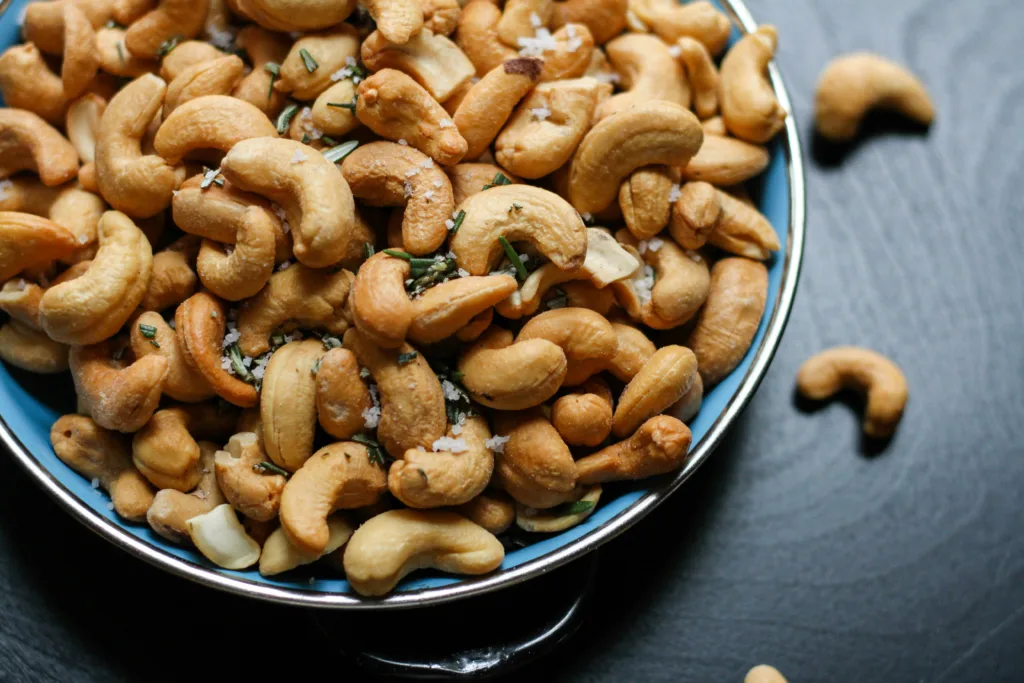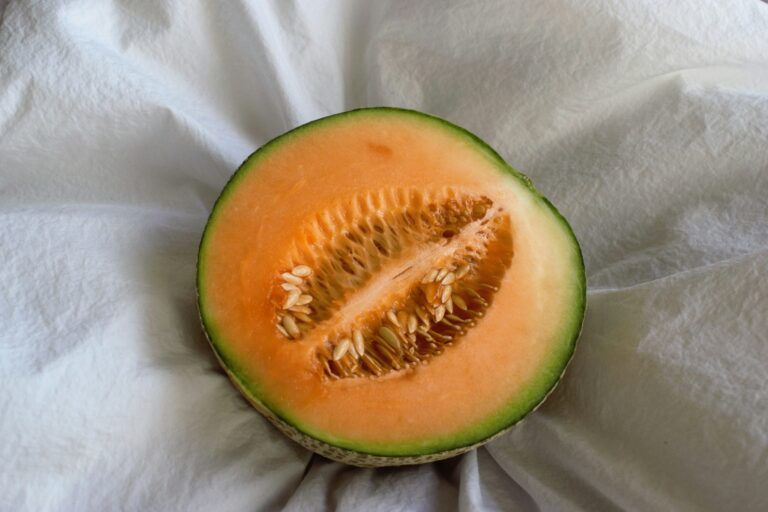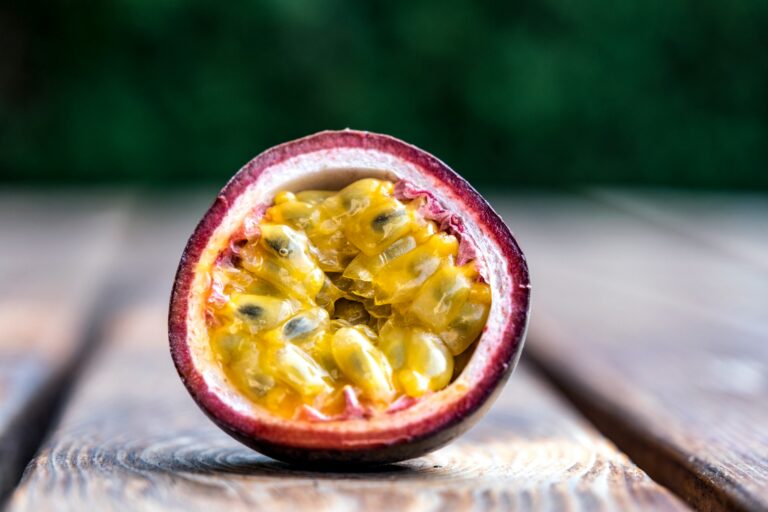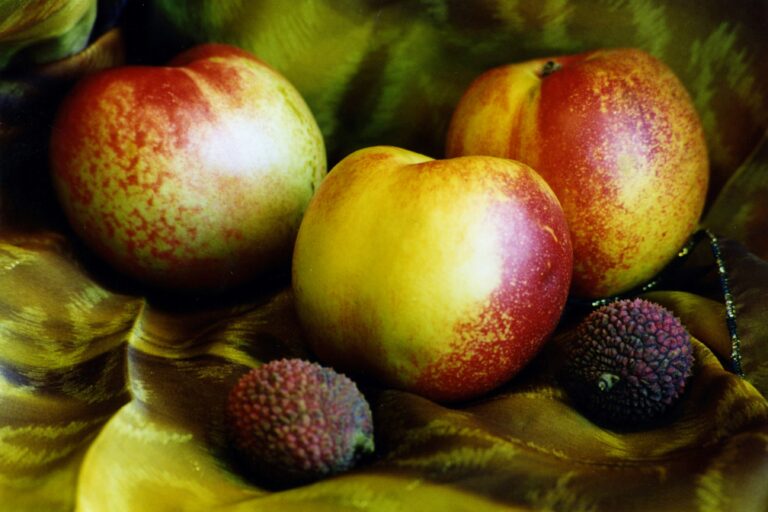The scientific name of the cashew nut is Anacardium occidentale. Apples and cashews are called false fruits and are not true fruits because the ovary forms these fruits along with other accessory floral plants. Cashews are originated in Brazil. The cashew tree is a source of cashew nuts and cashew apples. Casual trees occur in the savannas and some coastal forests in northern South America, Brazil, and adjacent Paraguay. The Europeans were the first to discover cashew nuts around 1558.
Color: Brown color is observed in the cashews. Color varies from light green to light brown.
Shape: The shape of a cashew is a kidney-shaped seed about 2.5 cm long. Also heart-shaped achene, in any normal variety
Size: Cashew nut measures about an inch in length and 1/2 inches in diameter and is kidney or bean-shaped. For small sizes is, the kernels are generally >2.80 mm for large sizes, the kernels are generally >4.75 mm
Flavor: cashew nuts are categorized into industry standards and are produced in several flavors: chocolate cashew nuts, salted cashew nuts, and pepper cashew nuts.
Nutrients
Cashew nuts are very beneficial and important for the human body as they are fully packed with nutrients. Cashew nuts are perfectly edible. Cashew seeds are rich in minerals but their most important source of minerals is fiber and carbohydrates.
One cup of 246 grams of cashew nuts contains the following nutrients:
- Calories 553
- Protein 18 g
- Total carbohydrate 30 g
- Cholesterol 0 mg
- Sodium 12 mg
- Iron 37% of the daily value
- Total fat 44 g
- Dietary fiber 3.3 g
- Vitamin D 0 % of the daily value
- Potassium 660 mg
- Vitamin B6 20% of the daily value
- Calcium 3% of the daily value
- Vitamin K 8% of the daily value
- Magnesium 73% of the daily value
- Sugar 6 g
| How to grow cashew nuts? |
Healthy Benefits of Cashew Nuts
Cashew nuts are incredibly nutritious and easy to enjoy in several different recipes. Cashew nuts help you manage heart health.
Help you lose your weight
Cashew nuts are rich in calories and fats. According to recent research studies, the human body may only digest and observe around 84% of the calories. This is likely because a portion of the fat they contain remains trapped within the cashew’s fibrous wall rather than being absorbed during digestion. Roasting or grinding the nuts may increase your body’s ability to fully digest them.
Aid people with type 2 diabetes:
Cashews are a good source of fiber, a nutrient that helps prevent blood sugar spikes, and which is thought to be believed to offer protection against type 2 diabetes. Foods higher in refined carbohydrates and sugar with cashews are likely to reduce blood sugar levels.
Cancer prevention:
Cashew nuts are rich in proanthocyanidins, a flavonol that is associated with cancer cell replication. Furthermore, the presence of copper and other beneficial minerals may help to reduce the risk of colon cancer.
Benefits of heart health
A diet rich in nuts including cashews has been linked to lower the risk of diseases like stroke and heart disease. A low LDL to HCL ratio is typically viewed as a marker of good heart health. Consumption to higher LDL cholesterol levels and lower blood pressure.
Contains beneficial plant compounds
Nuts and seeds are considered an antioxidant powerhouse. Antioxidants are beneficial plant compounds that keep your body healthy by neutralizing the damage-causing molecules known as free radicals. This helps reduce inflammation and increase your body’s ability to stay healthy, smart, and free from diseases.
Cashews are a rich source of carotenoids and polyphenols.
Helps in reducing cholesterol
Much of the fat in cashew nuts comes from the stearic acids, which experts think may have little effect on blood cholesterol. People having a diet of cashew nuts every day may see a small reduction in LDL bad cholesterol.
FAQ
What are the health benefits of cashew nuts?
Cashew nuts are very beneficial and important for the human body as they are fully packed with nutrients. Cashews are a great source of protein, fiber, and good fats. A range of vitamins, minerals, and other plant chemicals that are health-protective are also present in them. Cashews may help with heart health, blood sugar regulation, and weight loss. But compared to other nuts, cashews have received less research.






